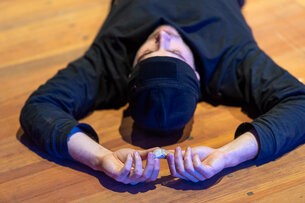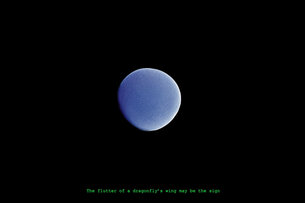IMPACT23 – Assembly III
Listening to unrecognized forms of knowledge
Themen
IMPACT
The annual transdisciplinary symposium IMPACT invites practitioners and theorists from the arts and sciences to engage with changing, overarching, and complex themes, linking their diverse perspectives and formulating common concerns.
›IMPACT23‹ explores the interrelationships between humans, animals, plants, and objects – in ecosystems and in the technosphere – and how these shape our patterns of perception through assumptions, projection, and selection. ›Ecologies of Attention‹ questions what powerful phenomena, forces, connections and exchange relations remain hidden or obscured as a result. What methods, tools, strategies, or systems are required to reevaluate these connections and foster productive relationships? Which ingrained patterns need to be disrupted?
The starting point and vital forum of the four-day symposium are the so-called Assemblies – a series of concise presentations where participants introduce themselves and their work to one another. The second assembly ran under the topic: Ecologies of Attention – the fragility of facts, normality and social norms.
- Wencey Mendes’ work focusses on geospatial indigenous communities and their concerns of land, water, environments, sustainability, inclusivity and climate change. He documents their indigenous knowledge and practices bringing together their rich expertise in the fields mentioned above. Sia Wen Di is a writer and researcher. Her work focusses on the Semai people, an indigenous group, and their rituals, cosmology and their way of perceiving nature that they have managed to maintain as a stable environment and live in balance with nature.
- Sia Wen Di’s research wants us to reconnect with the Semai’s ancestral knowledge and their cosmology to find solutions for the global climate crisis.
- Agoston Nagy is an artist and researcher. As an artist, Agoston Nagy has been making algorithmic art, building responsive environments using free and open source tools since the early 2000s. In his research he investigates algorithmic thinking, machine intelligence, extended cognition and complex systems through different cultural and artistic approaches.
- Felipe Shibuya is an ecologist and visual artist. Through his work he tries to connect art and science as a necessary tool to understand and solve ecological and social issues. Focussing on nature’s communication methods from visible colours and sounds to signals humans can’t perceive.
- Tahila Mintz is an Indigenous Yaqui and Jewish multidisciplinary artist and Founding Executive Director of NGO (OJI:SDA' Sustainable Indigenous Futures). She will spoke about healing though land and natural world relationships, focusing on the Ancestral Gratitude Bridge as well as on a community Plant Care Fellowship, which she leads.
A project within the framework of The Alliance of International Production Houses, funded by the Federal Government Commissioner for Culture and the Media.

